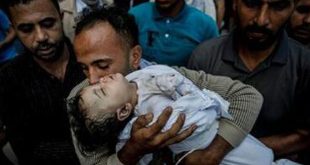The Grand Ayatollah Sistani, in a statement while answering questions about the Coronavirus, also made important recommendations for believers.
The statement recommends invocation on the Glorious God to avert the disaster caused by the Coronavirus and repeatedly doing things such as giving alms to the poor people, helping the weak ones, reciting the Holy Quran and praying.
The Supreme Religious Authority has also emphasized the need to fully adhere to the tips for preventing the disease, according to experts and avoiding unscientific methods.
He also advised to take care of those infected with the virus, regardless of their religious affiliation, and to try and help alleviate their suffering.
The full text of the statement issued by the Office of the Grand Ayatollah Sistani is as follows:
In the name of God, The Most Compassionate, The Most Merciful
The office of the Grand Ayatollah Sayyid Ali Sistani
Assalamu Alaikum wa Rahmatullahi wa Barakatuhu
The outbreak of Coronavirus is spreading in many countries around the world and the number of affected people is increasing day by day. As we have become aware by the the Supreme Religious Authority on the necessity of following the guidelines issued by the relevant parties to prevent the outbreak of this dangerous epidemic disease, such as the prohibition of gatherings and attending these gatherings for any purpose, we have some questions from the Great Religious Source of Imitation that we ask him to answer:
Question: Is it necessary to avoid contact with people suspected with Corona disease by doing things like shaking hands, hugging, kissing, and so on? And is it permissible to visit them without taking precautionary measures such as wearing masks and the like?
Answer: If such behaviors cause the fears of being affected by the virus and cause any harm to the person, though other than death, should be avoided unless precautions are taken, such as disinfecting, wearing appropriate masks and medical gloves, So as to ensure that no disease is present, and if he does not observe the above mentioned tips and get caught up in what he fears, he will not be religiously excused.
Question: Is it permissible for a person with the disease who has some possible symptoms to visit the people who are unaware of his condition? And if he did so and the virus was transmitted to them, what is the responsibility of such a person for those who are infected by him?
Answer: It is not permissible for such a person to visit others because they are likely to be infected by the virus, and if he do so, and cause others to be infected who are unaware about his condition, he is responsible about the harm he did on that person and if the person dies as a result of the disease, so blood money is obligatory for him.
Question: Does anyone who has entered the country from another country and has been in contact with some people affected with coronavirus need to quarantine himself in home and ensure about his health by referring himself to medical centers?
Answer: Yes, it is necessary and must follow the instructions issued by the relevant factions.
Question: Is it permissible to use religious incomes, including Zakat and Khums, to provide the necessary means for preventing disease such as masks, gloves, cleaners and disinfectants, as well as medicines and other medical necessities needed to fight the virus?
Answer: There is no prohibition against the use of Zakat in such cases from the share of Sabilillah and use of Khums from the share of the Imam (PBUH), along with the observance of Shari’a criteria.
Question: What is your advice to the believers who are in such a difficult situation struggling with this dangerous disease?
Answer: We recommend the dear believers to the followings:
A: Appeal to God and pray to him to dispel this calamity and perform many righteous acts such as giving alms to the poor people, helping the weak ones, reciting the Holy Quran and reading the prayers narrated by the Prophet (PBUH) and his Ahl al-Bayt (A.S).
B: Appropriate prudence and awareness about the circumstances of this epidemic disease, out of fear, and complete observing the prophylactic measures and therapeutic modalities, based on what is prescribed by the experts and avoiding unscientific methods in the field.
C: Trying to inform others about the dangers of underestimating the virus and encouraging them to follow the instructions issued by the relevant factions and not to violate them.
D: Assisting families affected by the closure of jobs and restriction on traffic in the current situation.
E: Caring for patients regardless of their religious affiliation and efforts to alleviate them and to help them fulfill their needs.
May God take away all evil and badness from all people.
Peace, mercy and blessings of God be upon you all.
 source:shafaqna
source:shafaqna
 Ijtihad Network Being Wise and Faithful Muslim in the Contemporary World
Ijtihad Network Being Wise and Faithful Muslim in the Contemporary World
